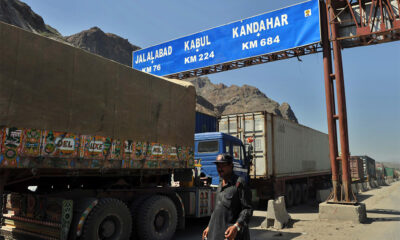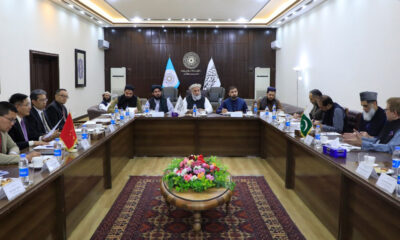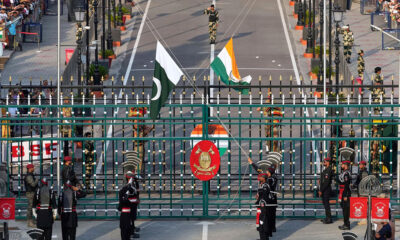World
Saudi-led coalition hits Yemen’s Sanaa airport
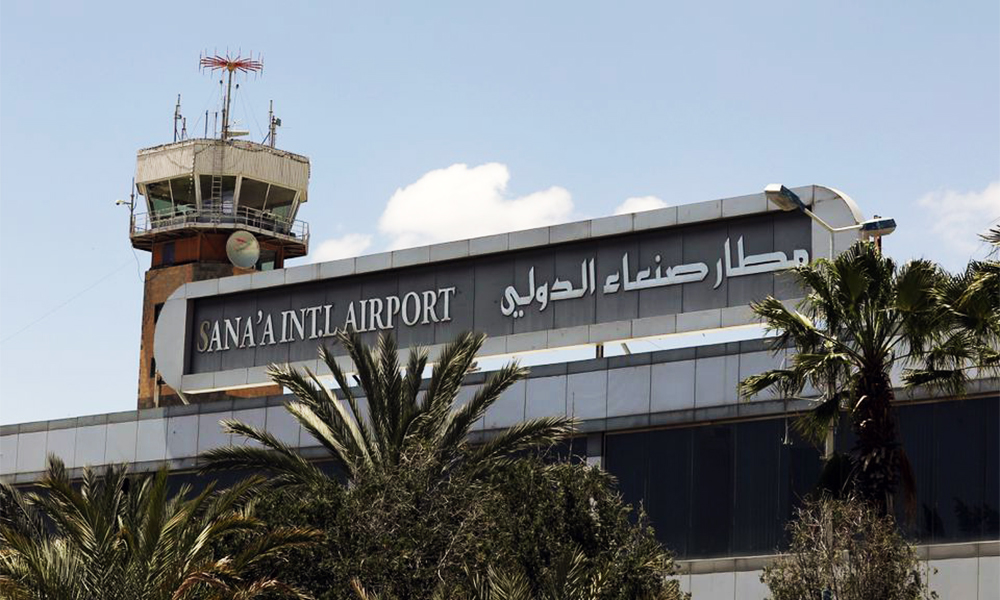
The Saudi-led coalition fighting in Yemen on Monday carried out air strikes on the international airport of the Houthi-controlled Yemeni capital Sanaa after asking civilians to immediately evacuate, Reuters quoting state media.
The coalition called on the workers of international and humanitarian organisations in the airport to immediately evacuate as it had taken “legal measures to deal with the threat operationally,” state media said.
The coalition said it lifted the protection off specific sites in the airport and carried out strikes on “legitimate military targets” in it, read the report.
“The operation comes in response to threats and the use of the airport’s facilities to launch cross-border attacks,” it said.
According to Reuters the strikes hit six sites, coalition spokesman Brigadier General Turki al-Malki said, including places used for launching attacks by drones, training drone personnel, housing trainers and trainees, and storing drones.
“Destroying these targets will not have any effect on the operational capacity of the airport, and will not affect managing the airspace, the air traffic, and ground handling operations,” the spokesman said in a statement.
During the seven-year-old conflict, forces of the Iran-aligned Houthi movement have sent drones and fired missiles into Saudi Arabia, and the Saudi-led coalition has retaliated with air strikes inside Yemen, Reuters reported.
On Sunday, the coalition said it had destroyed a drone launched from the airport and aimed at civilians at Saudi Arabia’s King Abdullah airport in Jizan, near the border with Yemen.
The coalition also said on Sunday it conducted a military operation in Sanaa to destroy workshops and warehouses for drones and other weapons, urging civilians to avoid the area.
The coalition intervened in Yemen in 2015 after the Houthis ousted the internationally recognised government from Sanaa.
World
Trump says India, Pakistan agree to ‘full and immediate ceasefire’

U.S. President Donald Trump said on Saturday that India and Pakistan had agreed to a “full and immediate ceasefire” after a fourth day of strikes and counter-strikes against each other’s military installations.
Pakistan’s foreign minister also said both countries had agreed to a ceasefire “with immediate effect” and India’s foreign ministry said it would start at 5 p.m. Indian time (1130 GMT).
“After a long night of talks mediated by the United States, I am pleased to announce that India and Pakistan have agreed to a FULL AND IMMEDIATE CEASEFIRE. Congratulations to both Countries on using Common Sense and Great Intelligence,” Trump said in a post on Truth Social.
The sudden announcement came on a day when fears spiked that the countries’ nuclear arsenals might come into play as Pakistan’s military said a top military and civilian body overseeing its nuclear weapons would meet.
But Pakistan’s defence minister later said no such meeting was scheduled.
At the same time, officials from both sides showed a willingness to take a step back following the day’s exchanges, as the combined civilian death toll on the two sides rose to 66.
“Pakistan and India have agreed to a ceasefire with immediate effect,” Pakistani Foreign minister Ishaq Dar posted on X. “Pakistan has always strived for peace and security in the region, without compromising on its sovereignty and territorial integrity!”
India’s foreign ministry said that the head of Pakistan’s military operations called his Indian counterpart on Saturday afternoon and it was agreed that both sides would stop all firing.
The two heads will speak to each other again on May 12, the ministry added.
The fighting began on Wednesday when India carried out strikes on what it said was “terrorist infrastructure” in Pakistani Kashmir and Pakistan, two weeks after 26 people were killed in an attack on Hindu tourists in Indian Kashmir.
Pakistan denied India’s accusations that it was involved in the tourist attack. Since Wednesday, the two countries have exchanged cross-border fire and shelling, and sent drones and missiles into each other’s airspace.
The countries have been locked in a dispute over Kashmir since they were born after the end of British colonial rule in 1947. Hindu-majority India and Islamic Pakistan both claim Kashmir in full but rule it in part.
They have gone to war three times since, including twice over Kashmir, and clashed several times.
India blames Pakistan for an insurgency in its part of Kashmir that began in 1989 and has killed tens of thousands. It also blames Pakistani Islamist militant groups for attacks elsewhere in India.
Pakistan rejects both charges. It says it only provides moral, political and diplomatic support to Kashmiri separatists.
(Reuters)
World
US offers to help India and Pakistan start talks, G7 also urges dialogue
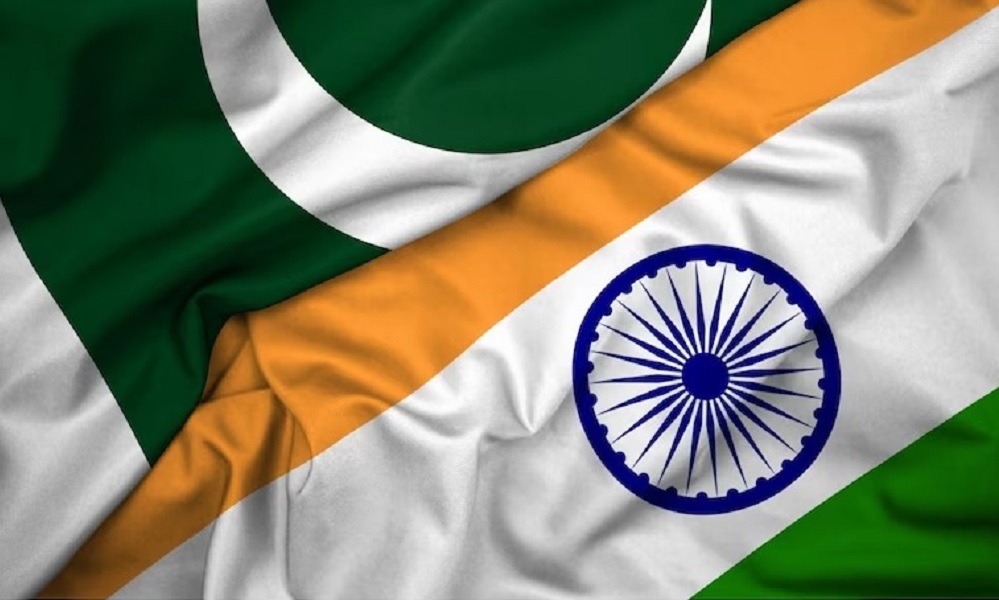
The U.S. government said it offered assistance to make India and Pakistan start “constructive talks” while the Group of Seven (G7) major countries also urged the Asian neighbors to engage in direct dialogue amid heightened hostilities.
World powers have raised the alarm over the latest escalation in the decades-old India-Pakistan rivalry. India hit Pakistan with air strikes and missiles on Wednesday and since then the nuclear-armed countries have been clashing daily while launching strikes against each other’s military installations on Saturday. Dozens have been killed.
The U.S., especially Secretary of State Marco Rubio, has held regular talks with both India and Pakistan since late April and urged them to de-escalate.
The U.S. State Department late on Friday and early Saturday released three statements on Rubio’s calls with Pakistan Army Chief Asim Munir, and the foreign ministers of India and Pakistan.
It said Rubio urged them to “re-establish direct communication to avoid miscalculation” while offering U.S. assistance “in starting constructive talks” to avoid future conflicts.
Michael Kugelman, a Washington-based South Asia analyst and writer for the Foreign Policy magazine, said Rubio’s decision to call the army chief directly was “the most consequential move the U.S. has made” since the start of the crisis:
“If you want to talk to the Pakistanis about de-escalation, you need to talk to General Munir.”
President Donald Trump said earlier this week the rising tensions were a shame. U.S. Vice President JD Vance said a war would be “none of our business.”
In recent years, India has been seen as a partner by Western powers to counter China’s rising influence. Pakistan is a U.S. ally although its importance has diminished since Washington’s 2021 withdrawal from neighboring Afghanistan.
In a G7 statement, the foreign ministers of Canada, France, Germany, Italy, Japan, the U.S., Britain and the European Union said they “strongly condemn” an April 22 Islamist militant attack in which 26 people were killed in India-administered Kashmir. India blamed Pakistan, which denied the accusations and called for a neutral probe.
“We call for immediate de-escalation and encourage both countries to engage in direct dialogue towards a peaceful outcome,” the G7 top diplomats said.
Muslim-majority Kashmir is claimed in full but ruled only in part by both Hindu-majority India and Islamic Pakistan and has seen wars, insurgency and diplomatic stand-offs over the decades.
(Reuters)
World
Macron to meet Syrian president on Wednesday, expected to discuss security
Sharaa in February received an invitation from Macron to visit France.
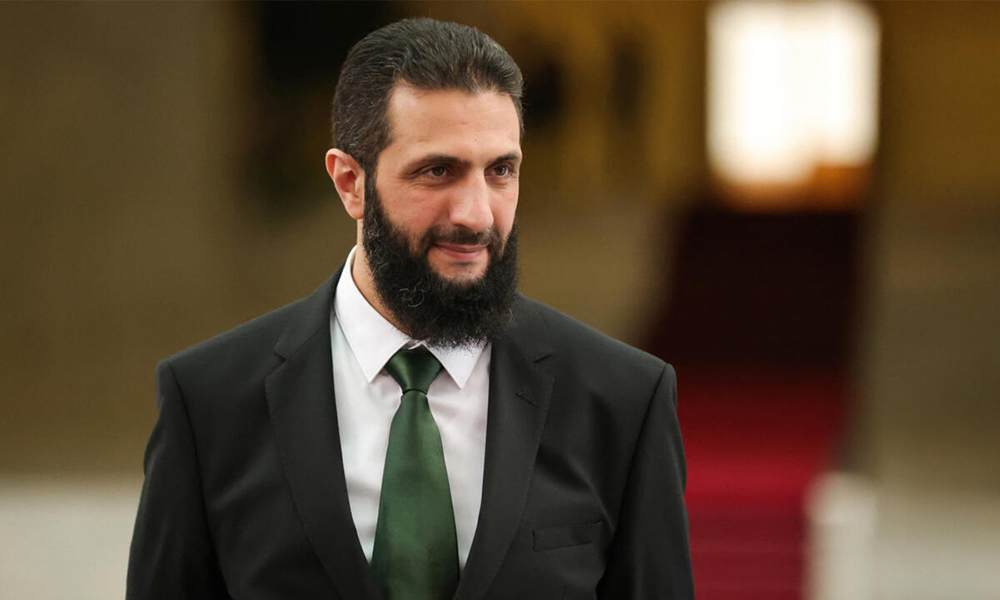
French President Emmanuel Macron will host a meeting with Syria’s President Ahmed al-Sharaa in Paris on Wednesday, the French presidency said on Tuesday.
During the meeting, Macron will reaffirm France’s support for the construction of a “free, stable and sovereign Syria that respects all the components of the Syrian society,” the statement said.
The visit, the first for Sharaa to a European country since the overthrow of Bashar al-Assad, is expected to address several security challenges faced by the new Syrian government, with particular emphasis on the repeated Israeli attacks on Syria’s sovereignty, according to the state-run Syrian news agency SANA.
Sharaa in February received an invitation from Macron to visit France, Reuters reported.
In January, Sharaa was named as interim president and pledged to form an inclusive transitional government that would build up Syria’s gutted public institutions and run the country until elections, which he said could take up to five years to hold.
Israel has escalated military operations in Syria since rebels ousted Assad in December, with bombings across the country and ground forces entering its southwest, while calling for Syria to remain decentralised and isolated, read the report.
It has framed its stance around its suspicion of Sharaa – who once headed a branch of al Qaeda before renouncing ties to the group in 2016 – and a desire to protect the Druze, a minority sect that is an offshoot of Islam with followers in Syria, Lebanon and Israel.
-

 Regional4 days ago
Regional4 days agoAt least 26 civilians killed in Indian strikes on Pakistan: Islamabad
-
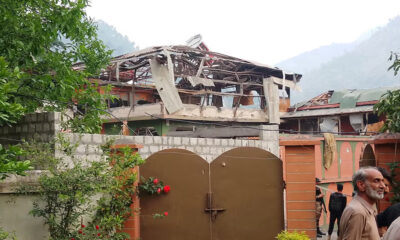
 Regional4 days ago
Regional4 days agoIndia strikes Pakistan over Kashmir tourist killings
-

 Science & Technology4 days ago
Science & Technology4 days agoSkype ends operations after 22 years of service
-

 Latest News4 days ago
Latest News4 days agoIslamic Emirate of Afghanistan ‘concerned’ over rising tensions between Pakistan and India
-

 World4 days ago
World4 days agoMacron to meet Syrian president on Wednesday, expected to discuss security
-
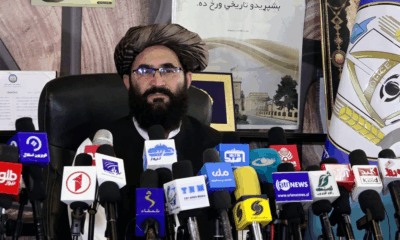
 Latest News4 days ago
Latest News4 days agoPassport Directorate earns nearly 13 billion AFN in one year
-
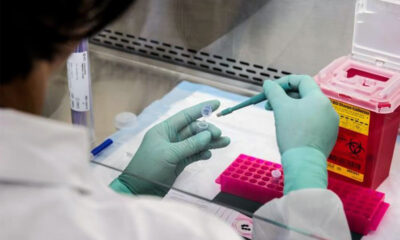
 Health4 days ago
Health4 days agoWHO confirms second Polio case in Afghanistan
-

 Regional3 days ago
Regional3 days agoIndia dismisses report of Pakistan downing jets as “disinformation”




